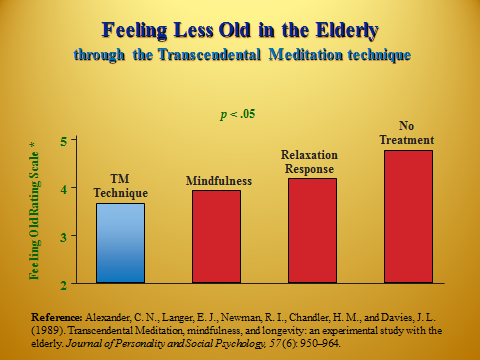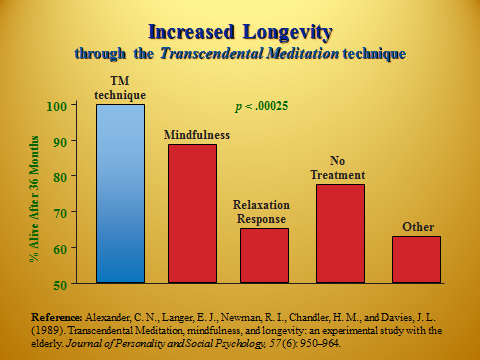Aging: Who is that in the mirror?
When I was in my early 30s and my grandmother was in her 90s, we stood together gazing into a mirror, admiring her new pink winter coat. Suddenly her face betrayed confusion and despair. “Who is this?” she murmured, “I’m only 18 years old!”
And now, decades later, I face the same disorienting betrayal of my internal truth when I look in the mirror.
I have every reason to believe that if we feel invincible or immortal, it’s because—at the core of our individual self—we actually are. Assertions of the immortality of the soul pervade religious scripture but the domain of the spirit is not a religious domain. It’s our personal domain, found in our deepest moments of realization and reflection.
Because matter is relative and is subject to decay, our bodies are not immortal. Our soul, however, transcends the material plane and is not beholden to matter’s laws—it is absolute, never-changing and immortal. There are many people who’ve had exposure to the field of infinity that is the deepest level of experience; based on that, they spontaneously reject any assertion that we are only our bodies and therefore doomed to change, decay, illness, and death. On the other hand, many people have had no intimations of immortality and therefore reject the idea that there is a deep level of themselves that will outlive their body. Some people try to find ways to escape mortality by attempting to make their earthly bodies immortal.
In fiction, we remember many characters who sought or attained immortality, from Peter Pan to Dorian Gray to Puck. And history records seekers of everlasting earthly life, such as:
∞Sometime around the 9th century, a group of Chinese monks tried to concoct a recipe for immortality. (Ironically, they stumbled instead upon the recipe for gunpowder—the basis of a technology that ensured the tragic immediate mortality of hundreds of millions of people since.)
∞Ponce de Leon, Spanish conqueror and explorer of the 15th and 16th centuries, was rumored to have sought a fountain of youth (in what is now Florida) that he’d heard about from Caribbean islanders.
∞ In the Epic of Gilgamesh, one reads that the 18th century semi-mythic Sumerian King investigated the possibility of immortality following the death of his friend. Gilgamesh also wished to give the flower of immortality to the elders of the city to rejuvenate them and return youth to the kingdom.
When my grandmother articulated the disparity between her spirit and her body, it strengthened my resolve to reflect the eternal aspect of my Self in my mind and body as much as Mother Nature would allow. Over time, I found that my twice daily practice of the Transcendental Meditation technique not only enlivened the infinity within me, but it also helped slow, avoid or minimize the downside most people experience while aging.
Now modern technology is revealing new information about the underpinnings of aging. A study published in Nature used the enzyme telomerase (an enzyme that’s associated with reduced blood pressure, cardiovascular disease, and mortality) to stop and actually reverse the aging process in prematurely aged mice. The discovery of the role telomeres play in cellular reproduction earned three scientists the 2009 Nobel Prize in Medicine.
A new study published in PLOS ONE found that the Transcendental Meditation technique appears to stimulate genes that produce telomerase. Specifically, TM was found to help activate two genes that code for telomerase, which adds molecules to the ends of chromosomes, or telomeres, protecting them from deteriorating.
“The finding that telomerase gene expression is increased, and that this is associated with a reduction in blood pressure in a high-risk population, suggests that this may be a mechanism by which stress reduction improves cardiovascular health,” said Robert Schneider, MD, FACC, coauthor of the study. This research was part of a larger clinical trial funded by the National Institutes of Health and by the Howard University College of Medicine.
The new study examined what was happening at the level of DNA, showing that the Transcendental Meditation technique influences aging at the deepest level of the body’s functioning. Earlier research on the Transcendental Meditation technique found lower rates of high blood pressure, heart attack, stroke, and death, as well as slowing of biological aging.



About the Author
Janet Hoffman is the executive director of TM for Women Professionals, a division of TM for Women in the USA
More Posts by Janet
- A Simple Guide to Healthy Happy Mothers and Babies: An Interview with Author Margaret Mullins
- Author Ann Purcell Discusses Silence
- Five Fundamentals of Progress: A Scientific Path to Self-Improvement
- Advice You Can Rely On: How to Leverage Your Body’s Innate Healing Ability
- Saving the Ocean from Deadly Noise Pollution: An Interview with Kathy Matara PhD






